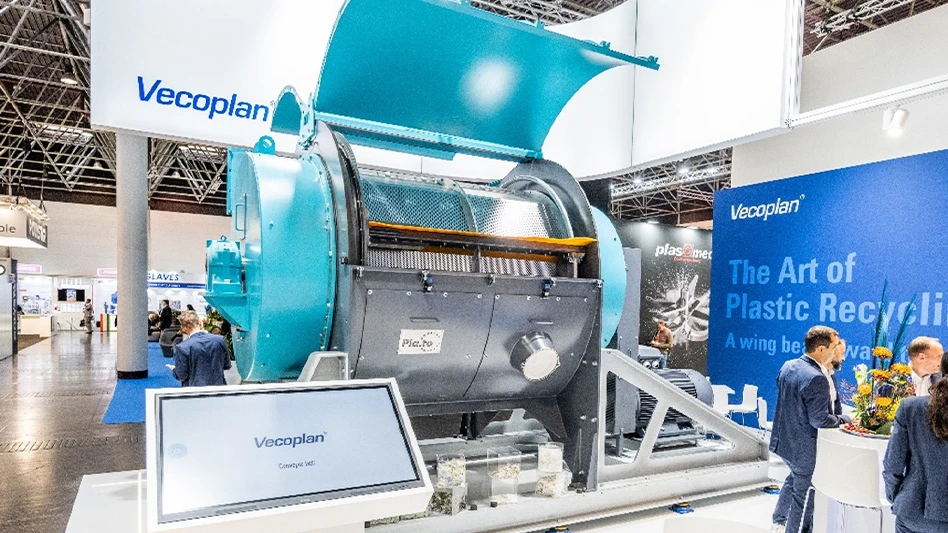The single-stream collection process and MRF (material recovery facility) configuration may be here to stay, but quality issues continue to pose challenges for operators of sorting and processing plants.
In a session at the 2014 Paper & Plastics Recycling Conference (paperrecyclingconference.com) titled “Coping with Changing Requirements for MRFs,” panelists commented on some of the problems and potential solutions common to MRF operators.
Cal Tigchelaar of Resource Management Cos., Chicago Ridge, Illinois, pointed to “volume-based garbage collection” systems that incentivize putting large or heavy nonrecyclable items into recycling bins as one problem.
Increasingly automated residential collection also means truck drivers or crew members are no longer seeing what is being tipped into collection trucks and have no ability to leave trouble-causing bins at the curb.
He also expressed concern about inadequate public education as another shortfall. Tigchelaar told attendees that he had lived in the same Chicago area community for 20 years and “I’ve yet to see a flier or card telling me what I can and can’t recycle.”
The net result, said Tigchelaar, is the presence of clothing, shoes, garden hoses, Christmas lights, toddler gates and even engine blocks on the tipping floors of his Chicago and St. Louis area MRFs.
In response, Resource Management runs several parallel sorting lines at no faster than 10 tons per hour at its MRFs. “We think that’s kind of the limit to do an effective presort,” said Tigchelaar.
A renewed emphasis on sorting at the earliest stages at MRFs has become increasingly common, said Mark Neitzey of equipment supplier Van Dyk Recycling Solutions, Stamford, Connecticut. “No customer has ever come to me to say ‘I wish I had a smaller presort [configuration] on my system,’” he said.
Ron Novas of Miami Waste Paper does not accept commingled residential materials at his facility in that Florida city. As a result, he says his company has paid just $11,000 in claims in the past three years. “We know the quality we have—it’s pretty high.”
Quality issues for Novas are more likely to involve excess moisture at his plant in south Florida. “Our only issue is moisture—it rains in Miami twice a day,” he remarked.
The 2014 Paper & Plastics Recycling Conference was Oct. 8-10 at the Marriott Chicago Downtown Magnificent Mile.
Latest from Recycling Today
- Equipment from the former Alton Steel to be auctioned
- Novelis resumes operations in Greensboro, Georgia
- Interchange 360 to operate alternative collection program under Washington’s RRA
- Waste Pro files brief supporting pause of FMCSA CDL eligibility rule
- Kuraray America receives APR design recognition for EVOH barrier resin
- Tire Industry Project publishes end-of-life tire management guide
- Des Moines project utilizes recycled wind turbine blades
- Charter Next Generation joins US Flexible Film Initiative





